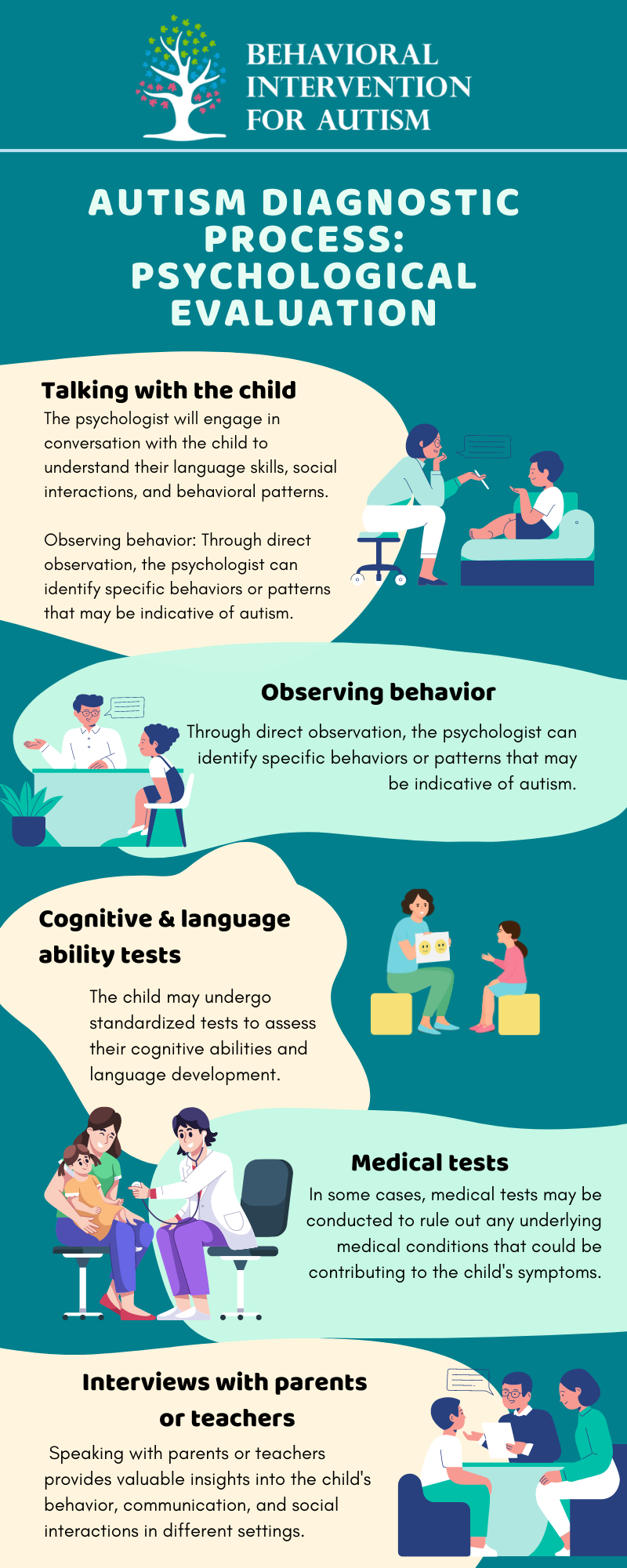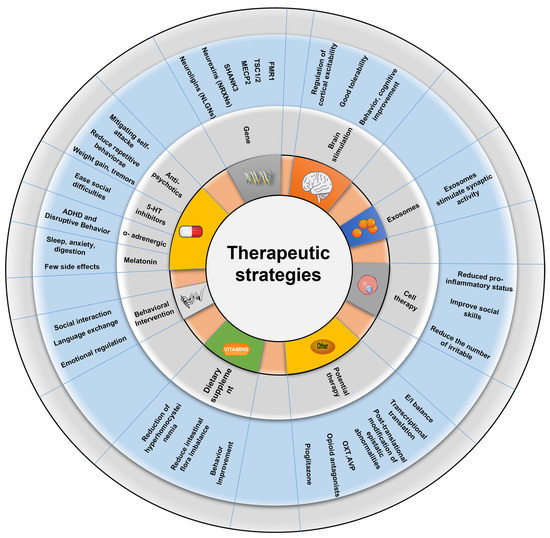When working with an Aba Therapist Near Me, your child may experience measurable progress in social and communication growth
When working with an Aba Therapist Near Me, your child may experience measurable progress in social and communication growth
Blog Article
Key Symptoms And Signs to Identify in People With Behavior Autism
When you run into a person with behavioral autism, acknowledging crucial symptoms and signs is necessary. You may observe challenges in social communications and interaction, in addition to a strong need for routines. Additionally, sensory sensitivities can lead to overwhelming experiences. Recognizing these traits can boost your support and interventions, yet there's even more to discover regarding exactly how these habits materialize in daily situations. Let's explore what these indicators actually resemble.
Challenges in Social Communications
When you interact with a person on the autism spectrum, you may notice they struggle with social hints and interaction. These difficulties can make social communications really feel overwhelming for them.
When they do engage, they may chat about their interests in excellent detail without seeing if you're interested. Understanding these challenges can help you come close to interactions with compassion and perseverance, cultivating an extra comfy environment for both of you.
Difficulty With Verbal and Non-Verbal Communication

Non-verbal interaction can be much more difficult. You might see an absence of eye get in touch with or minimal use of motions, which can make interactions feel awkward. Face expressions may not constantly straighten with the conversation, resulting in complication regarding their sensations. Recognizing these indicators is crucial, as it assists you better assistance and involve with people on the autism spectrum. By recognizing their communication difficulties, you can foster more purposeful links and supply a much more supportive setting.
Repetitive Actions and Regimens
Communication difficulties usually accompany various other indicators of autism, such as repetitive behaviors and a strong choice for regimens. You could notice that individuals with autism commonly involve in specific, repeated actions, like hand-flapping, rocking, or repeating expressions. These actions can give convenience and a feeling of control in a typically frustrating globe.
When they adhere to an organized routine,Regimens are equally important; many people flourish. You might find that changes to these routines can result in significant distress. For example, if they have a day-to-day ritual of consuming morning meal at a particular time or complying with a certain course to institution, any kind of disruption can create anxiousness.
Identifying these patterns aids you comprehend their habits and offer support. By fitting their demand for regular and permitting repetitive actions, you can create an extra comfy environment that reduces their obstacles.
Sensory Sensitivities

Typical Sensory Triggers
Sensory sensitivities can substantially affect every day life for individuals with autism, as particular stimuli often activate frustrating reactions. Usual sensory triggers include loud noises, intense lights, and strong smells. You could discover that unexpected audios, like sirens or alarms, cause stress and anxiety or distress. Similarly, fluorescent illumination in shops can feel uneasy and extreme. Appearances can additionally play a significant role; harsh fabrics or specific food structures might be excruciating for you. Additionally, crowded locations can bewilder your detects, making it tough to focus or kick back. Understanding these triggers can help you manage your setting much better. By understanding what affects you, you can take actions to decrease pain and boost your day-to-day experiences.
Behavioral Reactions Clarified
Understanding your behavior feedbacks to sensory level of sensitivities is crucial, as they usually disclose just how you engage with the world. You might see that certain audios, lights, or structures overwhelm you, leading to anxiousness or discomfort. When confronted with these stimuli, you might take out, cover your ears, and even respond strongly. These reactions aren't just traits; they're your method of dealing with overstimulation. You might also find on your own seeking details sensory experiences, like deep stress or quiet settings, to assist ground yourself. Acknowledging these patterns helps you recognize your requirements better and can lead how you communicate them to others. By recognizing your sensory sensitivities, you can function towards developing an atmosphere that feels extra comfortable and convenient for you.
Coping Approaches Summary
Recognizing your sensory sensitivities is just the initial step; now it's time to discover coping strategies that can assist you handle those experiences effectively. go Start by producing a sensory toolkit customized to your needs. This might consist of noise-canceling earphones, fidget toys, or relaxing aromas. Developing a Get More Info structured routine can additionally offer predictability, minimizing anxiousness around sensory overload. When you feel overwhelmed, take breaks in a silent area to regroup. Exercising mindfulness methods such as deep breathing can aid ground you in the moment. Furthermore, interact your requirements with those around you; having encouraging loved ones can make a substantial distinction. Keep in mind, discovering what works best for you may take time, so be patient and open to trying brand-new approaches.
Limited Interests and Focus
While many people create a large range of rate of interests, those with autism frequently show limited interests and an extreme concentrate on specific subjects. You could see that someone with autism can spend hours diving into their favorite subject, whether it's a particular sort of train, a certain motion picture, or a scientific concept. This intense emphasis isn't just a pastime; it can end up being a main component of their identity and social interactions.
You may discover that conversations revolve around these interests, and they might battle to engage in wider subjects. By understanding and recognizing these limited interests, you can promote a helpful environment where they really feel valued and recognized, enabling for even more purposeful connections and communications.
Emotional Regulation Troubles
Individuals with autism usually deal with challenges in psychological policy, which can be affected by their extreme emphasis on specific rate of interests. You may see that when a person is deeply taken part in a favored activity, they can experience strong emotions, whether exhilaration or aggravation. This intensity in some cases makes it hard for them to move gears or handle their feelings when points don't go as intended.

Irregularity in Developing Turning Points
When it comes to developing turning points, you'll discover that people with autism frequently show a broad variety of variability. You might see a kid stand out in language skills but struggle with social interactions.
It's necessary to identify that each person's moved here journey is unique. Observing these patterns can aid you recognize their staminas and requires much better.
Frequently Asked Questions
Just How Is Autism Identified in Children and Grownups?
To detect autism in kids and adults, specialists review habits, communication abilities, and social interactions. They frequently use standard tests, interviews, and monitorings to figure out if an individual fulfills the requirements for autism spectrum disorder.
Exist Different Sorts Of Autism Spectrum Disorders?
Yes, there are various kinds of autism spectrum conditions, including Asperger's disorder and pervasive developmental disorder-not or else specified. Each kind varies in intensity and characteristics, so understanding these differences can help you far better support individuals with autism.
What Treatments Work for People With Autism?
When thinking about reliable therapies for individuals with autism, you'll locate choices like Applied Habits Evaluation, speech treatment, and work treatment. Each strategy can help boost communication, social skills, and everyday operating tailored to individual requirements.
Can People With Autism Lead Independent Lives?
Yes, individuals with autism can lead independent lives. With the ideal assistance, abilities training, and resources, you can help them develop self-sufficiency, take care of day-to-day tasks, and flourish in different settings, fostering their self-reliance.
Exactly How Can Family Members Assistance Enjoyed Ones With Autism?
You can support your loved ones with autism by producing an organized atmosphere, urging their passions, exercising patience, fostering communication, and promoting social skills. Celebrate their accomplishments, despite exactly how tiny, and construct an encouraging area.
Although several people on the autism range can use and understand language, they typically deal with considerable difficulties with both spoken and non-verbal communication. Acknowledging these signs is necessary, as it assists you far better support and involve with people on the autism range. You may observe that individuals with autism commonly engage in particular, repeated activities, like hand-flapping, shaking, or duplicating phrases.Sensory sensitivities can considerably influence everyday life for people with autism, as specific stimuli frequently trigger frustrating responses.When it comes to developmental milestones, you'll see that people with autism typically show a large variety of variability.
Report this page